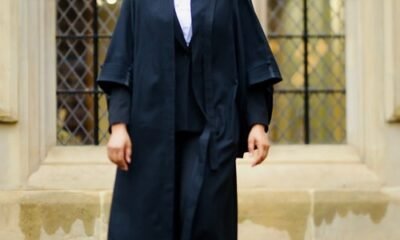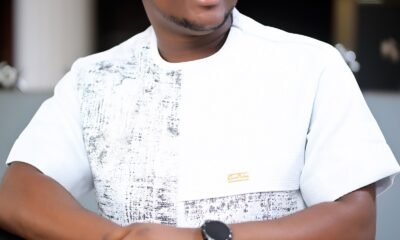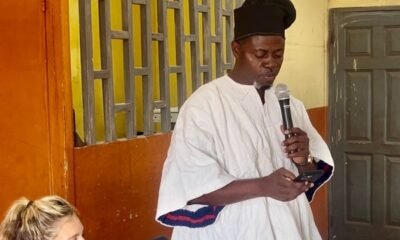News
Geoffrey Buta nominated for Joy FM Impact Makers Award
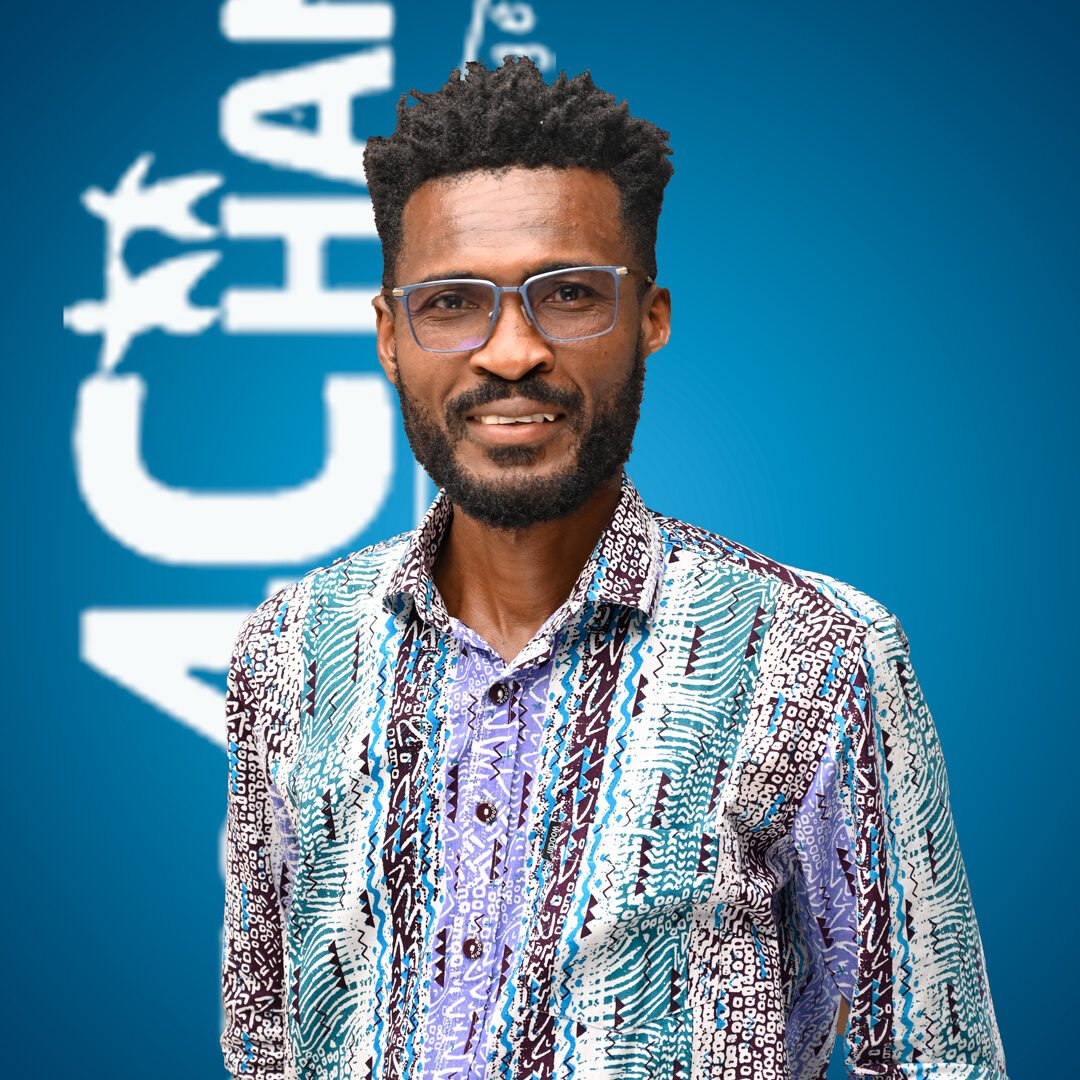
Geoffrey Kwame Buta, a photojournalist with the New Times Corporation (NTC), has been nominated for the 2025 Joy FM Impact Makers Award in the Education category.
Mr Buta, who is also the founder of Foto4Change, was recognised for his efforts in empowering Deaf and Hard of Hearing (DHH) students through visual storytelling.
His initiative, launched in 2023, trains students in photography and multimedia production to help them express themselves and document their experiences.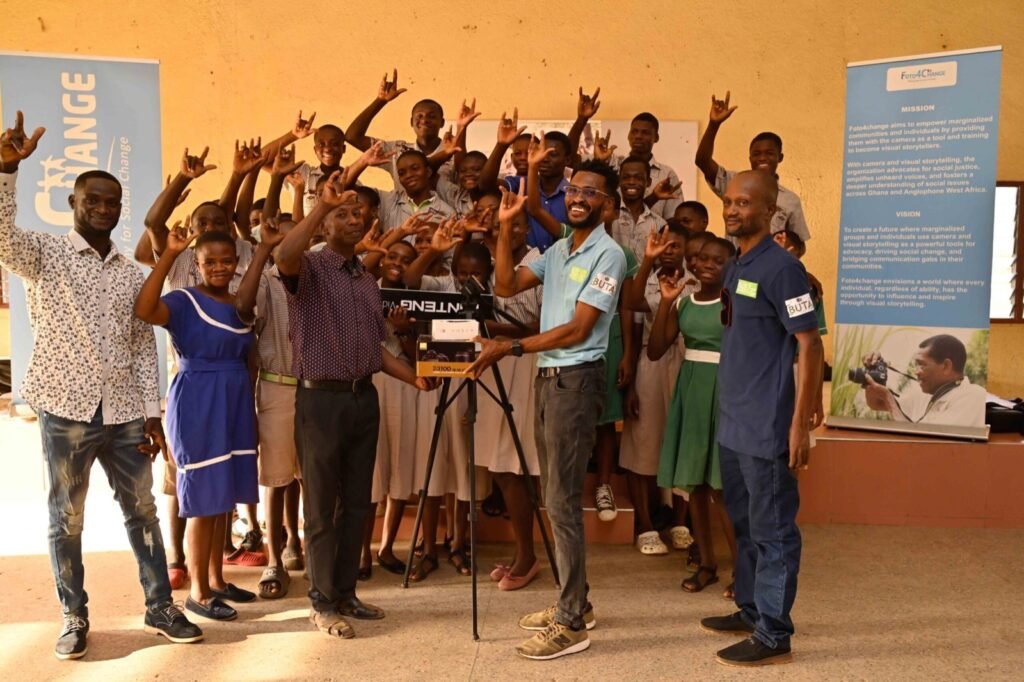
Since its implementation, the initiative has donated five professional cameras and accessories to five institutions in Ghana and Zimbabwe. These cameras are used to train DHH beneficiaries in visual storytelling, giving them practical tools to develop creative and technical skills.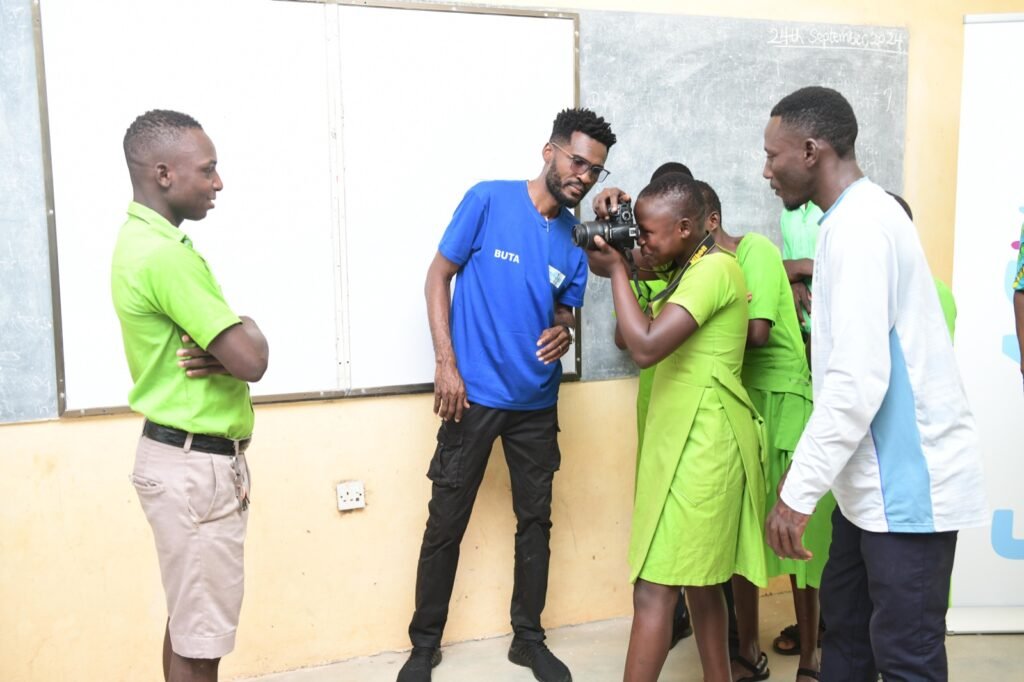
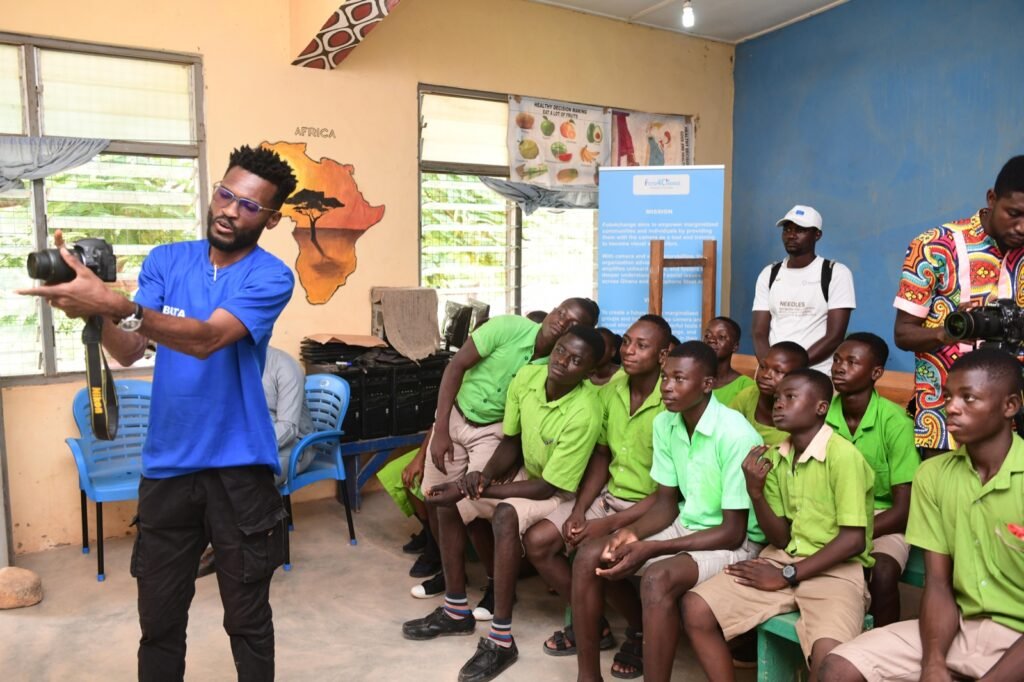
Explaining the initiative, Mr Buta said it was born out of a clear gap he observed in the creative communication space. “Deaf individuals are often left behind and excluded from opportunities in visual storytelling and media,” he noted.
“As a visual journalist and multimedia educator, I believe this gap can be addressed by using my professional skills to empower the deaf community through photography and visual storytelling,” he underlined.
During the maiden donation and training session, at the Savelugu School for the Deaf, Mr Buta noted that he was impressed by the brilliance and creativity of the students. “Their enthusiasm and potential inspired me to expand the initiative to other schools and eventually to Zimbabwe, in collaboration with the Deaf Zimbabwe Trust,” he added.
To date, the purchase of cameras and accessories has been fully self-funded through consultancy fees earned from client work. “This personal investment reflects my commitment to creating inclusive platforms for underrepresented voices in media,” he mentioned.
The Visual Storytelling for the Deaf project has so far benefited over 700 students. It has established visual storytelling clubs in five schools for the deaf and supported deaf students studying Mass Communication at Harare Polytechnic in Zimbabwe.
Moreover, Mr Buta stated that Foto4Change was planning a public exhibition to showcase the best works produced by the students from Ghana and Zimbabwe.
The exhibition aims to promote awareness, celebrate the students’ creativity, and build their confidence for future professional opportunities.
To ensure long-term impact, the initiative is also engaging media organisations to consider internship and employment opportunities for hearing-impaired trainees. “We want society to see them not as charity cases, but as capable professionals,” he pointed out.
He is also planning to establish a studio in one of the schools to train the beneficiary students who are interested in studio photography.
With more than a decade of experience in development communication, Mr Buta is a three-time Ghana Journalists Association (GJA) Photojournalist of the Year. He has also received the Reuters People’s Choice Award and the Deutsche Welle Human Rights Photography Award.
By Spectator Reporter
News
Support Street Academy to Break Cycle of Poverty in Society — Odododiodioo MP
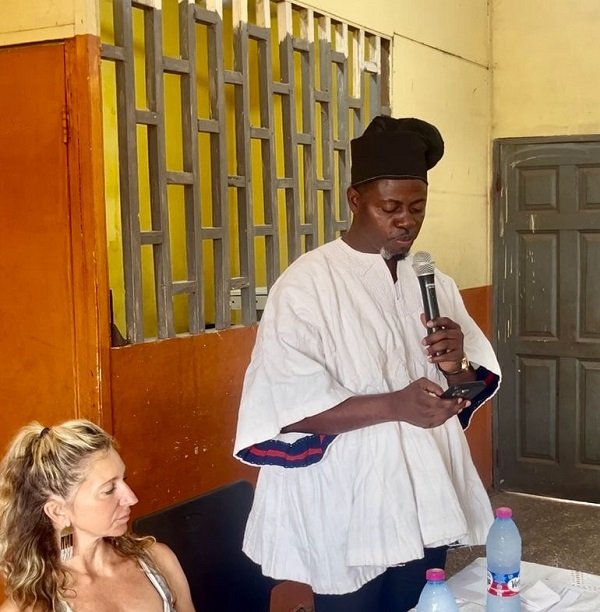
Mr. Alfred Nii Kotey Ashie, the Member of Parliament for the Odododiodioo Constituency in the Greater Accra Region, has assured the Accra Street Academy of his support in achieving its mission of uplifting vulnerable children within the community to break the cycle of poverty. “Without the needed support, your efforts may go round in circles due to the enormity of the task. This should not be left on the shoulders of the Academy alone. You need support from both government and the private sector. With that, the Academy would be in a good position to shape the future of these children on the streets,” he said.
The Accra Street Academy, originally formed in 1985 as a boxing arena, now serves as a school for deprived children, with most of its population numbering hundreds of pupils being neglected children from the streets of Jamestown and its environs. Mr. Alfred Nii Kotey Ashie made these remarks at the annual stakeholders’ meeting and fundraising event held over the weekend under the theme “Empowering Street Children: Health and Wellness.” The event is one of the Academy’s annual programmes, organized to raise funds and other forms of support to aid the school in catering to the needs of the children and holding its Christmas get-together.
According to the MP, it is worth noting that these children are taught and provided with two meals and a snack daily through the support of benevolent members of society. In view of this, he promised to facilitate the acquisition of documents needed for the construction of an Astroturf within the school’s premises. He noted that “every child has the right to play, and therefore I pledged to do my best to secure the needed documents” for the project to commence.
The legislator disclosed that over the years, the academic programmes of the Accra Street Academy have transformed children surviving on the streets into successful adults. He therefore urged other members of society to partner with the school to “help pupils rise higher for a better Ghana.” In the 2025/26 academic year, 22 pupils were absorbed by the Accra Metro Education Directorate as they transitioned into various Junior High Schools, while still returning to the Accra Street Academy for academic support.
Ms. Yvonne Abba-Opoku, a chartered governance advisor and senior executive in the nonprofit and charity sector, stated that the best gift to give a child was education.
By Spectator Reporter
Join our WhatsApp Channel now!
https://whatsapp.com/channel/0029VbBElzjInlqHhl1aTU27
News
Attend antenatal clinics for safe delivery … expectant mothers urged

Mrs Regina Kudom, Senior Midwifery Officer at the New Atuabo Health Centre in the Tarkwa Nsuaem Municipality, has urged expectant mothers to attend antenatal clinic regularly for safe delivery.
She revealed that “in Tarkwa and its environs many pregnant women prefer staying at prayer camps, we are not against that, you can be there, but when your time is up for your antenatal session make sure you attend.”
Mrs Kudom gave the advice when the Gold Fields Ghana Foundation (GFGF) observed the World Prematurity Day with pregnant women at New Atuabo, Huniso and Awudua health centres.
World Prematurity Day falls on November 17, every year, and it is celebrated to raise awareness about the challenges faced by pre-term babies and their families.
She said research suggested that sex during pregnancy could soften the cervix and potentially aid in labour preparation.
“That is the reason why we encourage pregnant women to have sex with their partners, if they do not have any health implications,” she added.
Mrs Kudom appealed to the GFGF to upgrade the New Atuabo health centre as the current structure was too small because they received many patients daily.
Madam Ayishetu Mohammed, Project Coordinator for GFGF, explained that they received donations from Project C. U. R. E and the items were given to health facilities in their operational area.
She stated that they noticed there were baby dresses, sanitary pads, and baby apparel, so they decided to distribute them among expectant mothers in three of their host communities.
Madam Mohammed said because the foundation was interested in preventive care, they brought a midwife from the Tarkwa Mine hospital to educate the pregnant women.
She extolled the midwives in New Atuabo health centre for the education they gave to the pregnant women and implored them to heed to the advice given during antenatal visits to reduce maternal deaths in the Tarkwa Nsuaem and Prestea Huni-Valley Municipalities.
Mr Paa Kwasi Egan, Deputy Chief Physician Assistance, emphasised that a pregnant woman being anemic meant she was not eating a balance diet, and added that, “Some of these women do not have money to buy food or visit antenatal clinics.”
He said when men follow their wives for antenatal visits, they would be educated extensively on why they should provide funds for their pregnant wives.
Mr Egan, therefore, encouraged all men to be involved in their pregnant wives’ antenatal care appointments so they could learn more about pregnancy, childbirth, and parenting. – GNA

